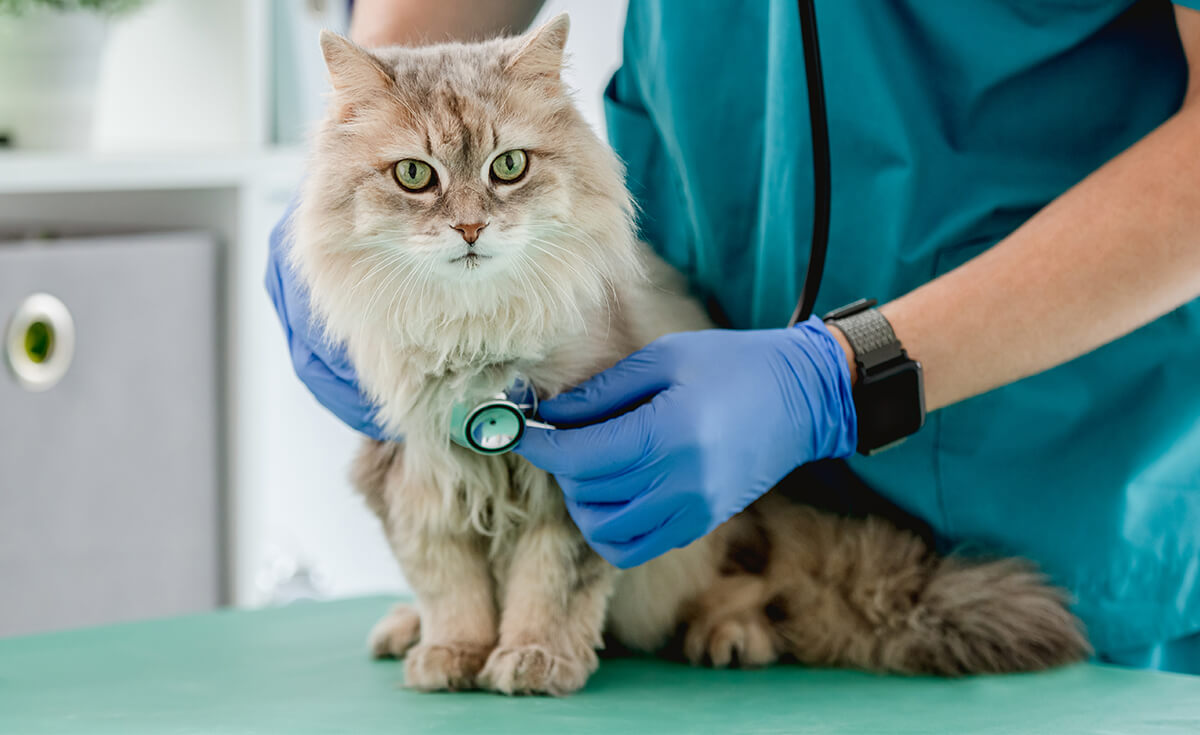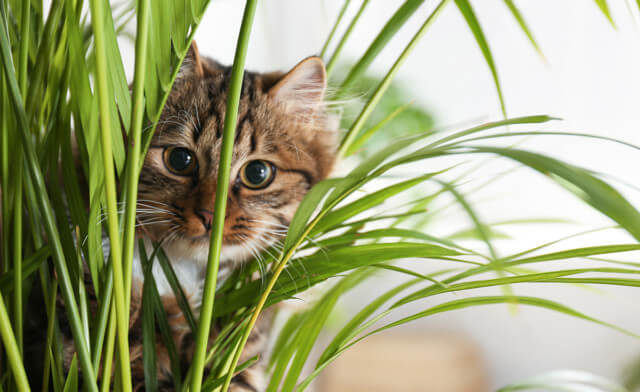How Often Should You Take Your Cat to the Vet?
As a cat parent, whether you’re caring for young kittens or maintaining the wellbeing of a healthy adult cat, understanding how often you should visit the vet is essential. Regular checkups are more than routine – they’re vital milestones that pave the way for your cat’s health, happiness, and longevity.
In this comprehensive guide, we’ll provide insights on preventive care, early detection of health issues, vaccinations, weight management, and more. By understanding how often your cat should visit the vet at each stage of their life, you’ll be better equipped to make informed decisions for your feline friend. Ready to embark on a journey towards a happier and healthier cat? Then let’s dive in!

The Importance of Regular Veterinary Care for Cats
Regular veterinary care for cats is vital for their overall health and wellbeing. From preventive care to early detection of health issues, vaccinations, weight management, and more, a consistent routine of checkups can make a big difference to your cat’s life.
Preventive Care for Overall Health and Wellbeing
Routine vet visits play an important role in maintaining your cat’s overall health, helping to prevent illnesses and keep your kitty in tip-top shape.
During these checkups, your vet will conduct various exams, including dental checks to prevent oral diseases and blood tests to assess overall organ health. These visits also allow for a comprehensive assessment of your cat’s overall wellbeing, such as skin and coat health and behavioral patterns.
For senior cats, more frequent examinations are often necessary to monitor age-related issues such as arthritis or kidney disease. Check out these guidelines from the American veterinary medical association for more information about feline preventive healthcare.
By maintaining a consistent schedule of veterinary care, you’re not only ensuring the physical health of your cat but also nurturing a trusting relationship between your pet and the veterinarian. This trust can make future visits less stressful and more productive, contributing to a happier, healthier life for your feline friend.
Early Detection of Potential Health Issues
Regular vet visits are essential for early detection of potential health issues in cats. Comprehensive physical exams performed by your vet can uncover underlying medical conditions, such as heart or kidney disease, that may not show symptoms in their early stages.
Blood tests conducted during these regular checkups provide further insight into your cat’s overall health, assessing factors like liver function and muscle composition.
By diagnosing and treating these issues early on, you can significantly improve your cat’s prospects, ensuring an active and fulfilled life.
Vaccinations and Parasite Prevention
Vaccinations are essential in protecting your cat from various diseases and keeping them healthy. As a pet parent, it’s important to stay informed about your cat’s vaccination schedule and ensure they receive the necessary shots on time.
Let’s take a look at core vaccines, which are essential for all cats, and non-core vaccines, which may be recommended based on your cat’s specific needs and lifestyle.
Core Vaccines for Cats
Core vaccines are critical for every cat, irrespective of the cat’s age, health condition, or lifestyle.
- Feline Panleukopenia (FPV): Highly contagious and potentially deadly.
- Feline Herpesvirus (FHV-1) & Feline Calicivirus (FCV): Common causes of respiratory and eye infections.
- Rabies: A fatal disease transmissible to humans.
Non-Core Vaccines for Cats
While core vaccines are essential for all cats, non-core vaccines are tailored to individual needs and specific circumstances. These vaccines may be recommended based on factors such as your cat’s environment, lifestyle, and potential exposure risks.
- Feline Leukemia (FeLV): The feline leukemia vaccine is recommended for high-risk cats, such as those in outdoor or multi-cat households.
- Bordetella: Suggested for cats often in close quarters with others, to prevent upper respiratory issues.
Internally, cats can become hosts to a variety of parasites, including roundworms, tapeworms, and heartworms. Regular deworming treatments are essential to combat these threats.
Externally, cats are susceptible to infestations by fleas and ticks. Effective tick and flea prevention involves routine topical treatments, collars, or oral medications.
Your veterinarian plays a crucial role in determining the best care plan for your cat, including the appropriate vaccine schedule and parasite preventatives. During regular vet visits, your vet will assess your cat’s specific needs and recommend the core and non-core vaccines that are most suitable, as well as the most effective methods for internal and external parasite prevention.
Weight Management
Maintaining a healthy weight for your cat is crucial for their overall well-being and quality of life. Overweight cats are at risk of developing serious health conditions such as diabetes, heart disease, and joint problems.
To manage your cat’s weight effectively, it’s important to provide them with a balanced diet that meets their nutritional needs without excess calories. Additionally, regular exercise through playtime and interactive toys can help keep your cat active and prevent weight gain.
One key aspect of weight management is choosing the right type of cat food. Options such as grain-free weight control cat food can be beneficial for weight management, offering lower calories, fat, and carbohydrates. Other specialized formulas like high-protein or grain-free food cater to specific health conditions or sensitivities, ensuring that your cat receives the nutrition they need.
Earthborn Holistic’s range of cat food options, including grain-free and specialized formulas, can be a valuable addition to your weight management strategy. With a commitment to quality ingredients and balanced nutrition, our recipes offer a delicious and nutritious way to support your kitty’s overall health and wellbeing. Remember to consult with your veterinarian to create a comprehensive weight management plan tailored to your feline friend’s specific needs.
Frequency of Vet Visits for Cats
The frequency of vet visits changes as your cat grows, from the early days of kittenhood to the unique care needed in their senior years. This section details the suggested checkups and vaccinations for each stage of life, helping you keep your feline friend healthy and happy at any age.
Kitten Stage
During the kitten stage, it’s crucial to bring your new furry friend to the veterinarian regularly. This includes getting their initial vaccinations and checkups every 3-4 weeks until they’re around 16 weeks old.
These visits are essential for ensuring that your kitten grows up healthy and protected against common diseases like feline viral rhinotracheitis, feline calicivirus, and feline panleukopenia.
Your vet will also monitor your kitten’s growth and development during checkups, providing guidance on proper nutrition and care. By staying consistent with these early veterinary appointments, you’re setting a strong foundation for your cat’s lifelong health.
Adult Cats
Adult cats require annual checkups and vaccinations to maintain their overall health and well-being. For healthy adult cats, these regular visits to the vet are crucial for preventing potential health issues from developing into something more serious.
During these annual checkups, your vet will conduct a thorough physical examination, assess your cat’s weight, and administer necessary vaccinations. Depending on the specific vaccine, adult cats should get vaccine boosters either annually or every three years. Your vet will tell you when to bring your cat in for vaccinations and booster shots.
Senior Cats
Senior cats should have bi-annual checkups to keep a close eye on any age-related issues that may arise. These regular visits to the vet are crucial for maintaining their health and ensuring early detection of any potential problems.
During these appointments, the veterinarian will conduct a thorough examination, checking for signs of arthritis, kidney disease, dental issues, and other common health concerns in your senior cat.
Blood tests may also be recommended to assess organ function and overall well-being. By staying proactive with your senior cat’s healthcare, you can provide them with the best quality of life possible in their golden years.
Signs that Your Cat Needs to See a Vet
Being attentive to your cat’s behavior and appearance is vital for their health and well-being. In this section, we’ll explore common signs that your feline friend may need to see a vet, from changes in eating habits to unexplained injuries.
Changes in Behavior, Appetite, or Litter Box Habits
If you notice changes in your cat’s behavior, appetite, or litter box habits, it may be a sign that they need to visit the vet. Cats are known for their consistency and routines, so any sudden shifts should raise some concerns.
For example, if your usually active and social cat becomes withdrawn or starts hiding more often, it could indicate an underlying health issue. Similarly, a decrease in appetite or frequent urination outside of the litter box might point to problems with digestion or urinary tract issues.
These changes are not something to ignore, they require attention from a veterinarian who can diagnose and treat any potential health problems.
Unexplained Weight Loss or Gain
If you notice that your cat is losing or gaining weight without any clear reason, it may be a sign that something is wrong. Sudden and unexplained weight changes can indicate underlying health issues such as thyroid problems, diabetes, or digestive disorders.
It’s important to take your cat to the vet if you observe these changes in order to identify and address any potential health concerns. Your vet will be able to conduct a thorough physical examination and run tests to determine the cause of your cat’s weight fluctuations.
Persistent Vomiting or Diarrhea
If your cat is experiencing persistent vomiting or diarrhea, it’s vital to take them to the vet immediately. These symptoms can be indicators of underlying health issues that need attention.
Your vet will be able to assess the situation and determine the cause of these symptoms. They may conduct tests, such as bloodwork or stool analysis, to get a better understanding of what’s going on with your cat.
Difficulty Urinating or Signs of Pain
If you notice that your cat is having difficulty urinating or showing signs of pain, make sure to take them to the vet as soon as possible. These symptoms could be a sign of urinary tract infections, bladder stones, or even life-threatening conditions like urinary blockages.
Your vet will conduct a thorough examination and may recommend diagnostic tests such as urine analysis or imaging to determine the cause of the problem. Prompt veterinary care is crucial in ensuring your cat’s comfort and preventing further complications.
Unexplained Injuries or Wounds
Unexplained injuries or wounds are another clear sign that your cat needs to visit the vet. Cats are known for being graceful and agile, so any injuries that can’t be explained by normal play or accidents should raise concerns.
Your vet will carefully examine your cat to determine the cause of the injuries and provide appropriate treatment. Don’t ignore unexplained wounds or injuries, as they could be a sign of an underlying health issue that needs attention.
Remember, cats may hide their pain or discomfort, making it even more crucial to seek veterinary care if you notice any unexplained injuries. Your vet will be able to assess the severity of the wounds and provide necessary treatments such as antibiotics or wound cleaning.
Other Factors to Consider
When deciding how often to take your cat to the vet, consider whether they’re indoor or outdoor, any existing health conditions, and lifestyle factors like travel or contact with other animals. Regular dental care and cleanings are also essential factors in this decision. Let’s take a look at these in more detail.
Indoor vs. Outdoor Cats and Exposure to Potential Risks
Indoor cats and outdoor cats face different risks when it comes to their health. Indoor cats are generally safer from dangers like traffic accidents, predators, and infectious diseases. However, they may still be at risk of dental disease and obesity due to inactivity.
On the other hand, outdoor cats have more freedom to explore but are exposed to hazards such as fights with other animals, exposure to toxins or parasites, and a higher chance of injury. When deciding how often to take your cat to the vet, it’s essential for cat owners to consider these factors.
Pre-Existing Health Conditions or Chronic Illnesses
If your cat has pre-existing health conditions or chronic illnesses, regular visits to the vet are crucial. Your veterinarian will closely monitor your cat’s condition and make necessary adjustments to their treatment plan.
They can provide guidance on managing symptoms, prescribe medications, and recommend specialized diets if needed. By staying proactive with veterinary care, you can help ensure that your feline friend is receiving the necessary support for their specific health needs.
Specific Lifestyle Factors
When it comes to taking your cat to the vet’s office, lifestyle factors such as travel or contact with other animals can play a role in determining how often your furry friend should have checkups.
If you frequently travel with your cat or they come into contact with other animals, it may increase their risk of exposure to diseases or parasites. In these situations, regular visits to the vet are important to ensure your cat’s health and wellbeing.
Your veterinarian will be able to provide guidance on any additional vaccines or preventive measures that may be necessary based on your cat’s unique lifestyle. Make sure to discuss your cat’s specific lifestyle with your vet so they can recommend appropriate care and preventive measures.
Key Takeaways
- Regular veterinary care is important for cats to prevent health issues, ensure early detection of problems, provide necessary vaccinations and parasite prevention, and aid in weight management.
- Adult cats should have annual checkups and vaccinations to maintain overall health and well-being.
- Senior cats should have bi-annual checkups to monitor age-related issues and ensure early detection of potential problems.
- Signs that your cat needs a vet visit include changes in behavior or appetite, unexplained weight loss or gain, persistent vomiting or diarrhea, difficulty urinating or signs of pain, and unexplained injuries or wounds.
Is Your Cat Receiving the Necessary Veterinary Care?
So, how often do you take a cat to the vet? It’s a vital question for every pet parent. Throughout this guide, We’ve broken down the importance of regular veterinary care, preventive measures, early detection of health issues, vaccinations, and weight management.
Whether it’s the initial vaccinations for kittens, annual checkups for adults, or bi-annual visits for seniors, understanding the frequency of vet visits is key. Don’t overlook signs that may indicate a need for immediate attention, and consider factors like indoor vs. outdoor living and pre-existing conditions. By staying proactive with your cat’s healthcare, you ensure a happy and healthy life for your purring pal!




